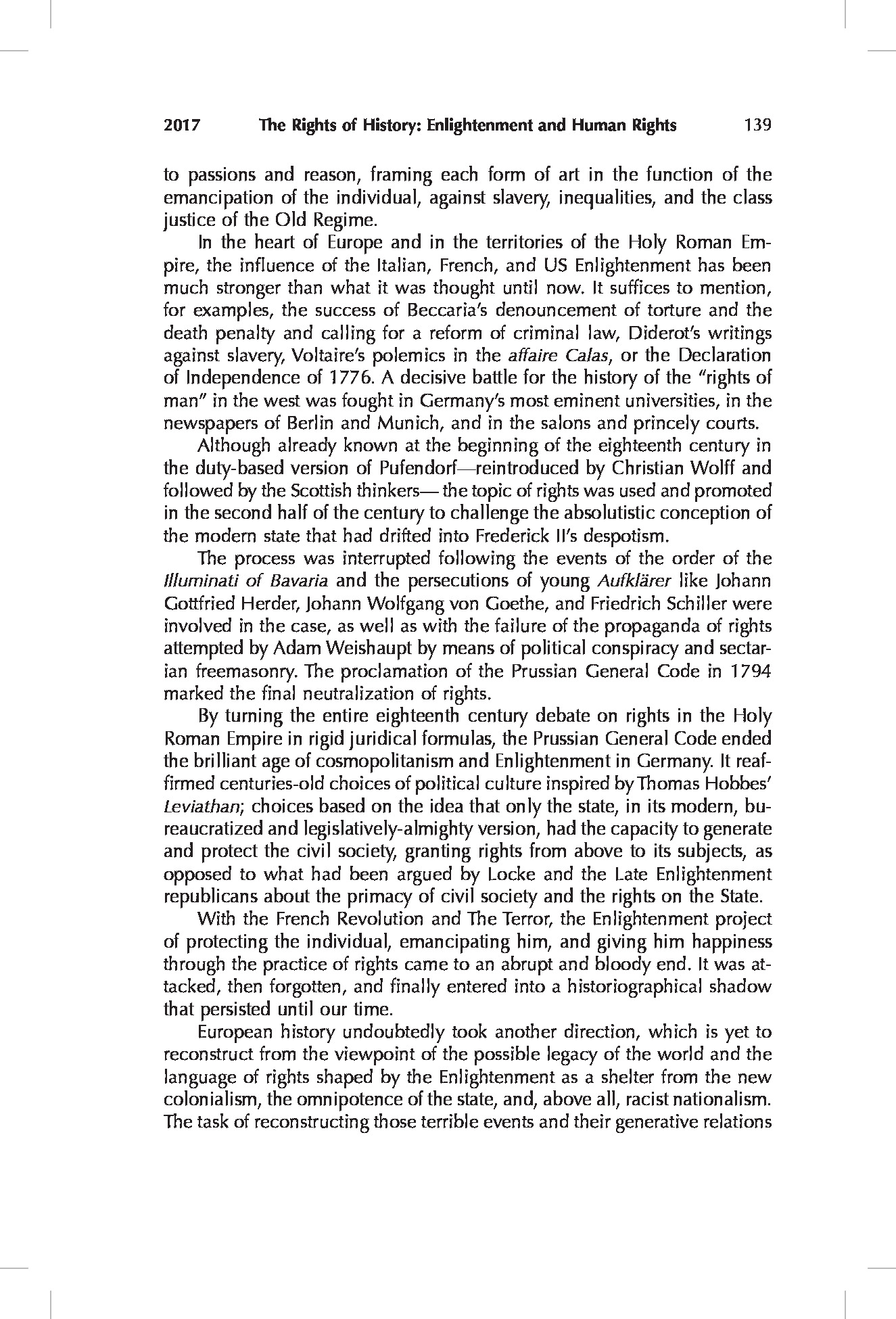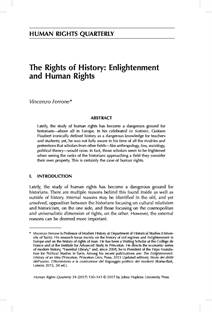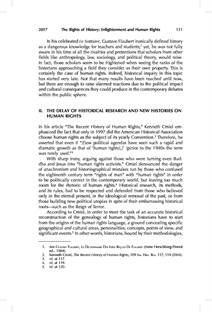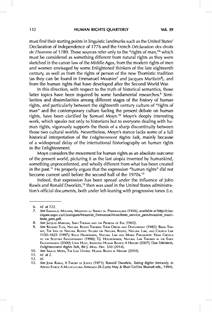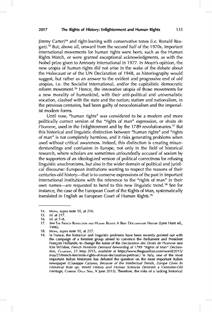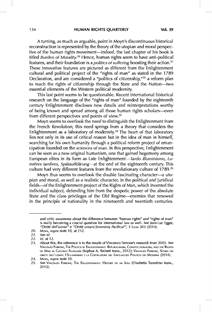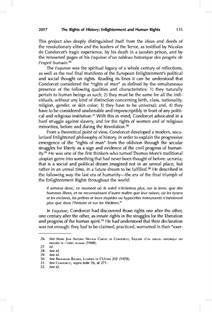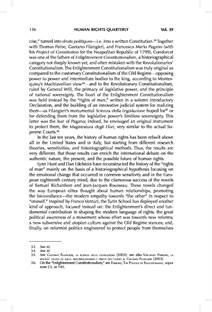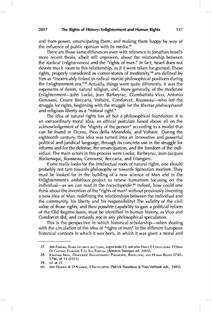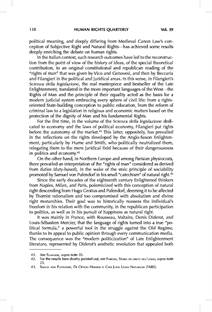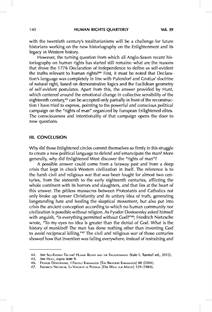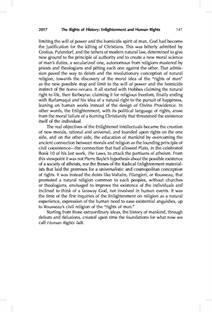2017
The Rights of History: Enlightenment and Human Rights
139
to passions and reason, framing each form of art in the function of the
emancipation of the individual, against slavery, inequalities, and the class
justice of the Old Regime.
In the heart of Europe and in the territories of the Holy Roman Em-
pire, the influence of the Italian, French, and US Enlightenment has been
much stronger than what it was thought until now. It suffices to mention,
for examples, the success of Beccaria’s denouncement of torture and the
death penalty and calling for a reform of criminal law, Diderot’s writings
against slavery, Voltaire’s polemics in the affaire Calas, or the Declaration
of Independence of 1776. A decisive battle for the history of the “rights of
man” in the west was fought in Germany’s most eminent universities, in the
newspapers of Berlin and Munich, and in the salons and princely courts.
Although already known at the beginning of the eighteenth century in
the duty-based version of Pufendorf—reintroduced by Christian Wolff and
followed by the Scottish thinkers— the topic of rights was used and promoted
in the second half of the century to challenge the absolutistic conception of
the modern state that had drifted into Frederick II’s despotism.
The process was interrupted following the events of the order of the
Illuminati of Bavaria and the persecutions of young Aufklärer like Johann
Gottfried Herder, Johann Wolfgang von Goethe, and Friedrich Schiller were
involved in the case, as well as with the failure of the propaganda of rights
attempted by Adam Weishaupt by means of political conspiracy and sectar-
ian freemasonry. The proclamation of the Prussian General Code in 1794
marked the final neutralization of rights.
By turning the entire eighteenth century debate on rights in the Holy
Roman Empire in rigid juridical formulas, the Prussian General Code ended
the brilliant age of cosmopolitanism and Enlightenment in Germany. It reaf-
firmed centuries-old choices of political culture inspired by Thomas Hobbes’
Leviathan; choices based on the idea that only the state, in its modern, bu-
reaucratized and legislatively-almighty version, had the capacity to generate
and protect the civil society, granting rights from above to its subjects, as
opposed to what had been argued by Locke and the Late Enlightenment
republicans about the primacy of civil society and the rights on the State.
With the French Revolution and The Terror, the Enlightenment project
of protecting the individual, emancipating him, and giving him happiness
through the practice of rights came to an abrupt and bloody end. It was at-
tacked, then forgotten, and finally entered into a historiographical shadow
that persisted until our time.
European history undoubtedly took another direction, which is yet to
reconstruct from the viewpoint of the possible legacy of the world and the
language of rights shaped by the Enlightenment as a shelter from the new
colonialism, the omnipotence of the state, and, above all, racist nationalism.
The task of reconstructing those terrible events and their generative relations
Dettagli
- Page N°:10
- Publication:
- Author:Vincenzo Ferrone

